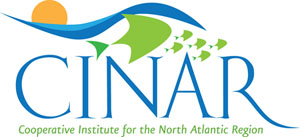“’Restore the Gulf of Maine’?—I didn’t even know it was in trouble.”
In spite of the Gulf of Maine’s reputation as a pristine summer destination, you don’t have to look very hard to see that it suffers from nearly all the same problems that plague the Great Lakes, Chesapeake Bay, and other “great waters” ecosystems in the United States.
A new study, The U.S. Gulf of Maine Habitat Restoration and Conservation Plan, which identifies and quantifies the issues for the first time, has now gotten the attention of Congress.
“The region’s Congressional Delegation now knows that action is needed,” said Peter Alexander, lead organizer of the initiative, which involved about 20 state and federal agencies in Maine, New Hampshire, and Massachusetts. “The problems are too big and the economic benefits of fixing them are too great to be ignored.”
“Combined sewage overflows and storm water runoff in developed areas are the biggest and most expensive problems,” said Joe Payne, Casco Baykeeper. “Throughout New England antiquated municipal sewage and storm water systems routinely get overwhelmed in heavy rainstorms, allowing billions of gallons of raw sewage to flow directly into coastal waters.”

Hauling Traps
According to the study, first published in December 2010, the amount of money needed in the short term (five years) to address this problem is nearly $4 billion, with sustained investment needed at that rate for at least 20 years (totaling over $16 billion).
The report identifies another $1.5 billion needed to restore habitat for migratory fish.
“Most dams and road crossings weren’t designed to accommodate ecological processes necessary for stream health,” explained Slade Moore, Habitat Restoration Coordinator for the Gulf of Maine Council on the Marine Environment. “Thousands of these structures cut off access to former habitat, including spawning areas for economically valuable fish species. We know how to correct these barriers, but the magnitude of the challenge far exceeds our current financial capacity. Meanwhile, despite the best efforts of restoration practitioners, populations of migratory fish species, like Atlantic salmon, American shad, and alewife continue to languish at numbers a mere fraction of their former abundance.”
Other issues identified in the plan include invasive species, impacts to coastal areas from rising sea levels, and the need for additional research, communication, and education to ensure a healthy and economically viable ecosystem.
New England is one of the last regions of the country to get the attention of Congress. In 2010 alone the Great Lakes Restoration Initiative received $475 million from Washington to jumpstart their $20 billion restoration plan, while Puget Sound and the Chesapeake Bay each received $50 million.
Long Island Sound, Lake Champlain, the Everglades, Louisiana Coast, and several other regions received tens of millions of dollars. These investments pay off in big ways. Evaluations of some of the projects completed under the Great Lakes Restoration Initiative are showing returns of as much as 10 to 1 in the form of jobs, tourism, recreation, property values, and other economic indicators.
Fortunately, New England may be about to get its due. A “discussion draft” of legislation, The New England Coasts Accountability and Recovery Act of 2011, is now circulating in both chambers of Congress. The bill would create a special program office within the National Oceanic and Atmospheric Administration (NOAA) charged with implementing the Gulf of Maine plan and a similar one for Rhode Island’s coastal waters.
“Maine’s delegation appears to be supportive of this,” said Alexander, “But with so many urgent priorities in DC these days, they will only take action if they hear from their constituents how important it is for the future economic vitality of the region.”
For more information about the Gulf of Maine restoration plan see www.northeastgreatwaters.org or contact Peter Alexander at peter@peteralexander.us.





















